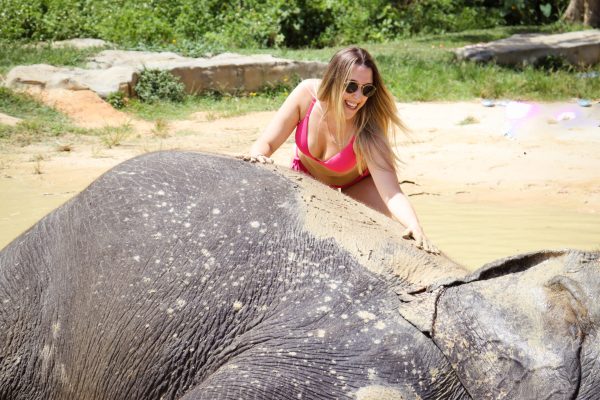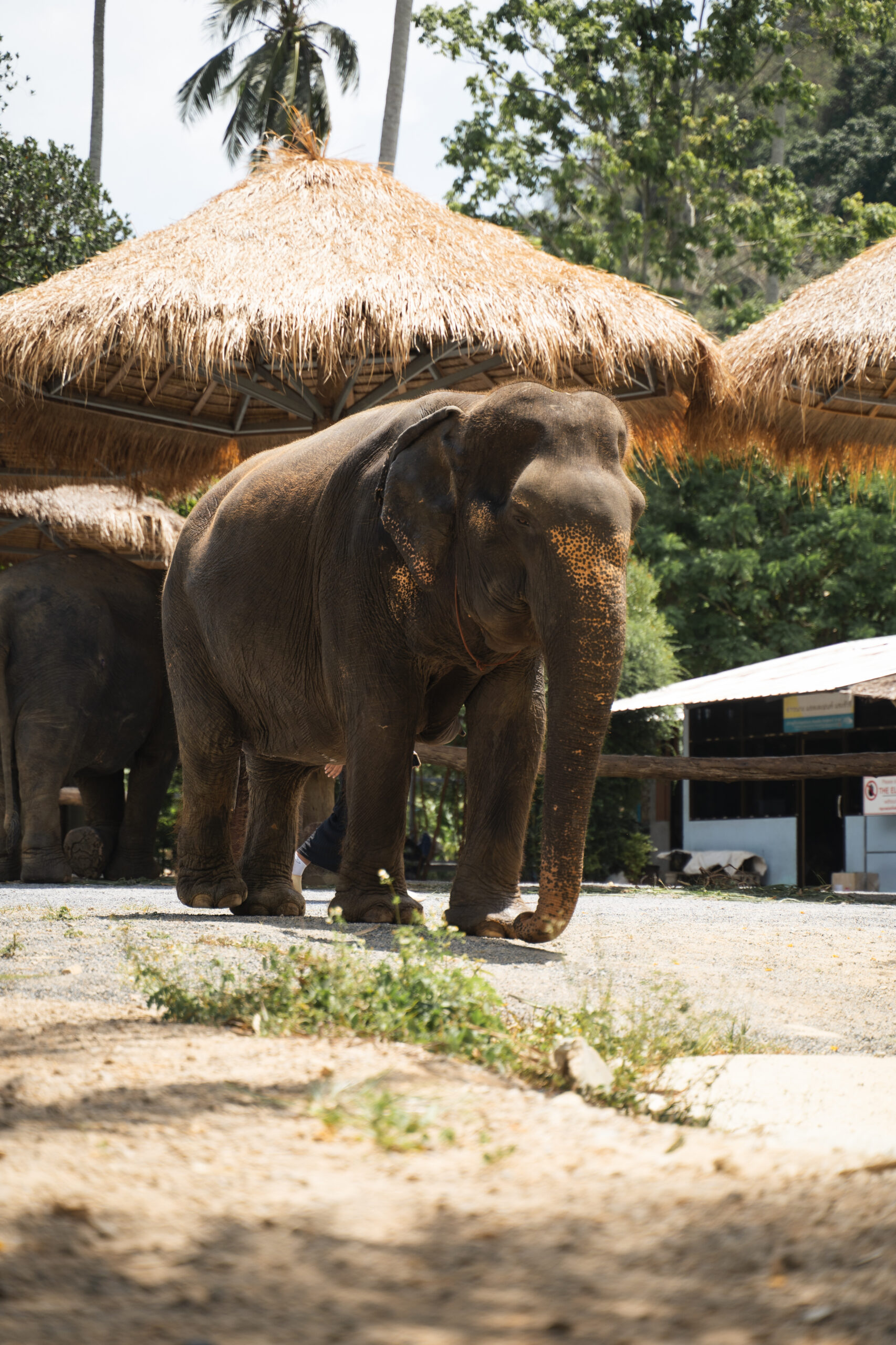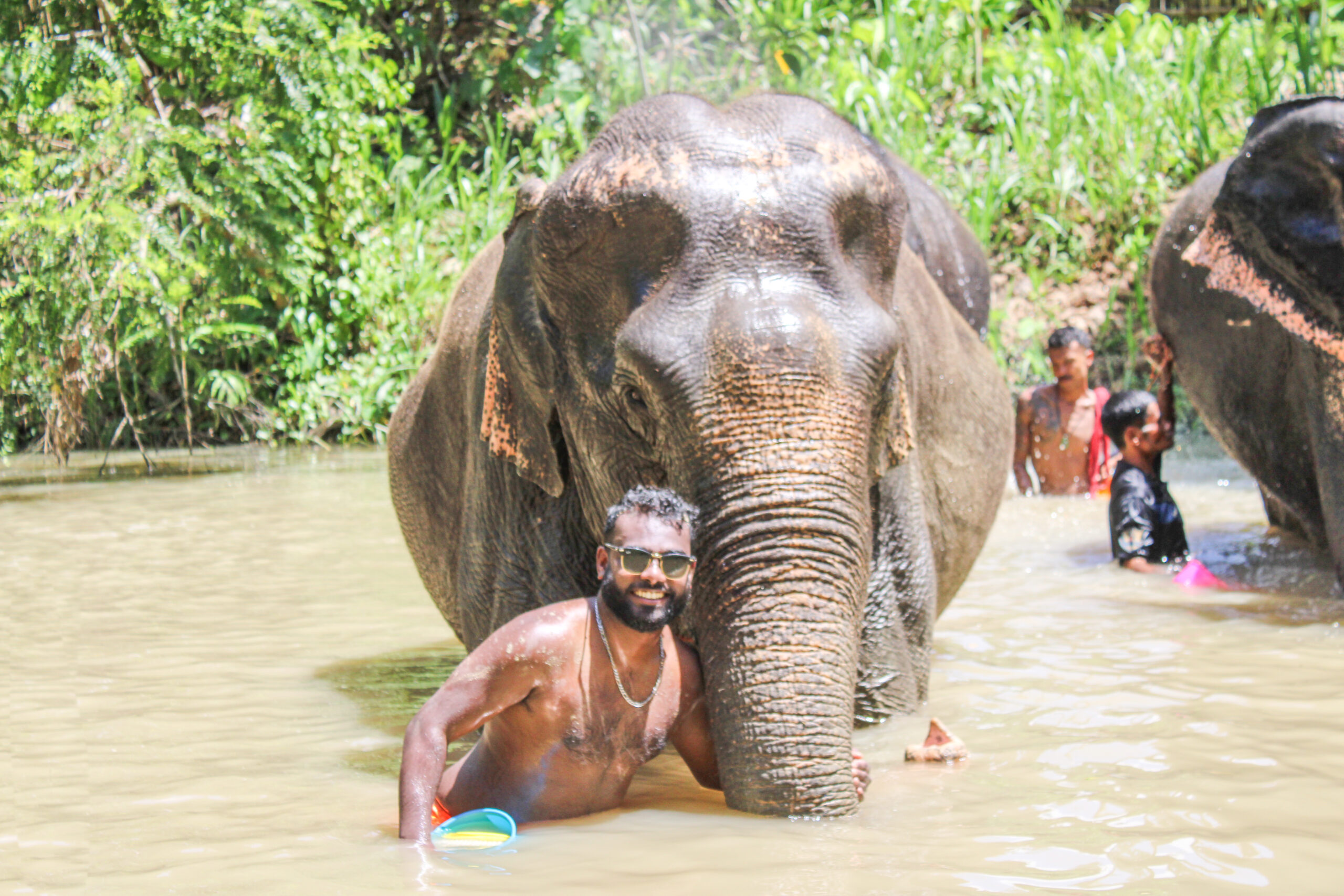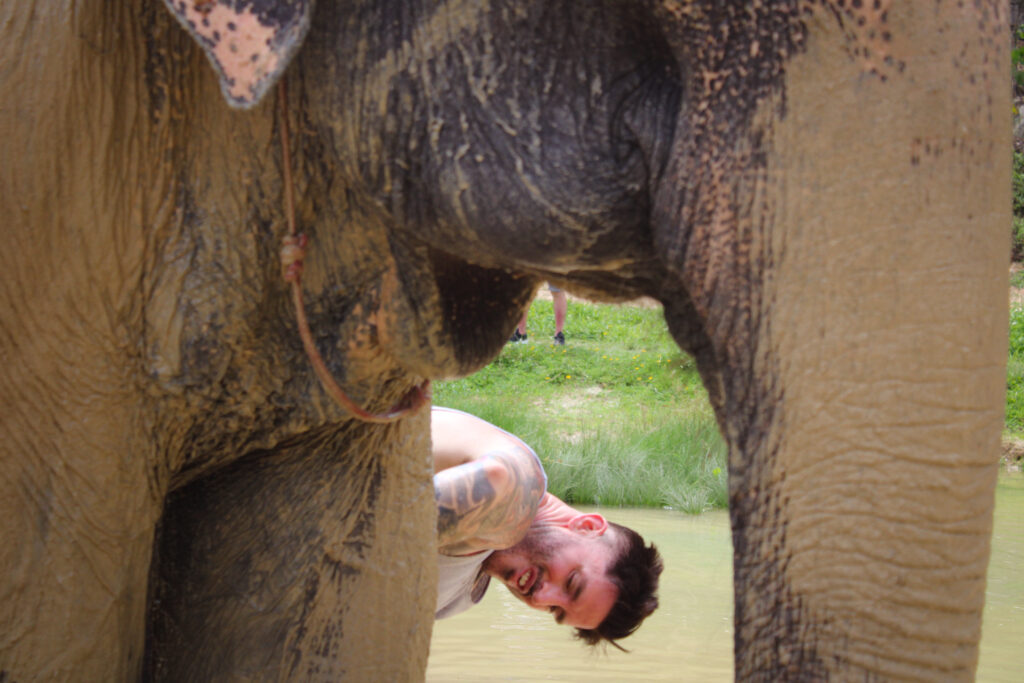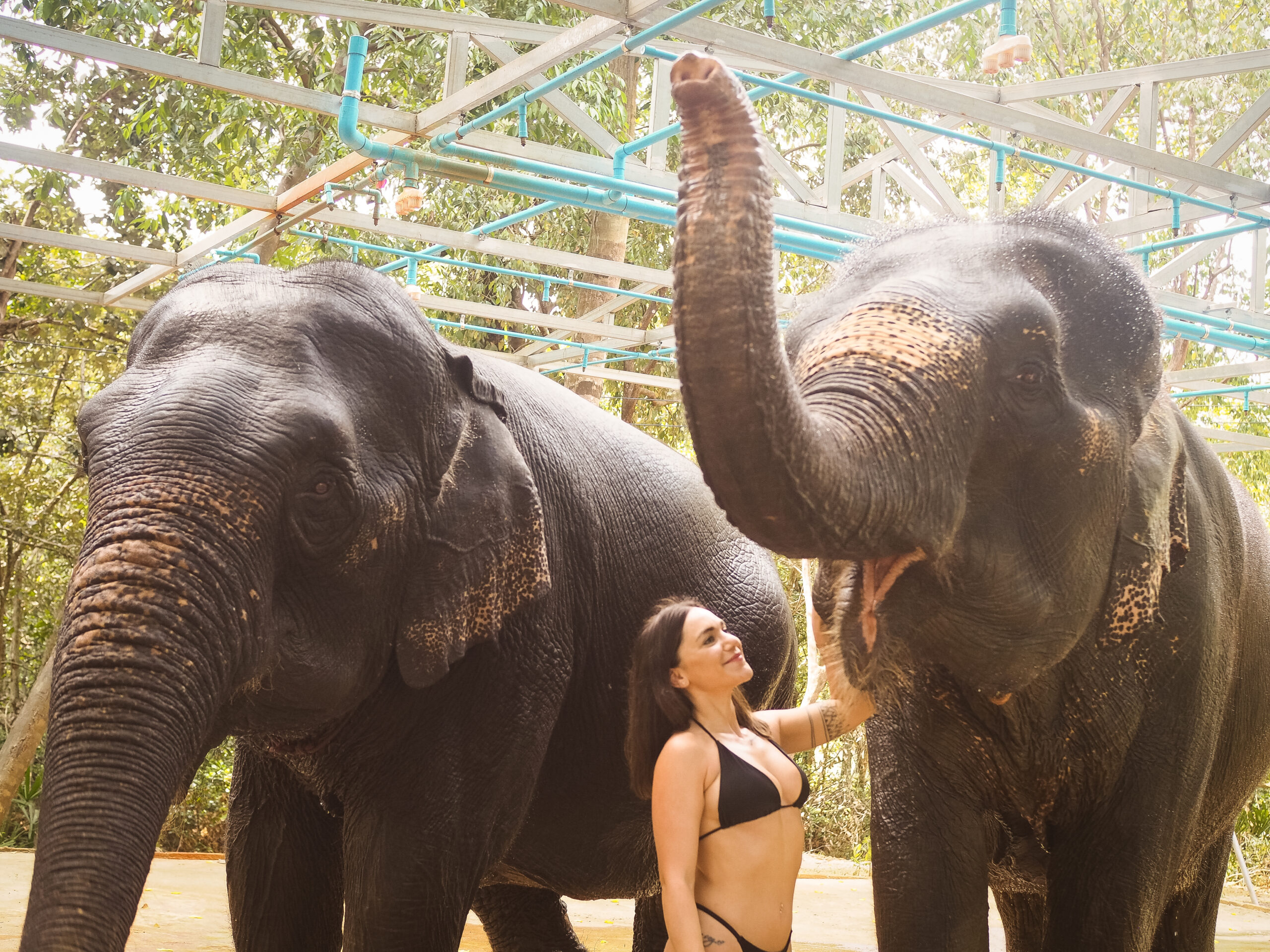
Welcome to the ultimate guide to Washing Elephants in Thailand—a journey of connection, conservation, and culture. In this comprehensive exploration, we delve deep into the art of elephant bathing, uncovering its rich traditions, ethical considerations, and transformative experiences. From the tranquil shores of Krabi to the lush jungles of Chiang Mai, Thailand offers a myriad of opportunities to engage with these gentle giants in a meaningful and sustainable way. Join us as we embark on an unforgettable adventure, where every splash of water brings us closer to the heart of elephant conservation.
The Tradition of Elephant Bathing
Elephant bathing is deeply ingrained in Thai culture, dating back centuries to a time when elephants were revered as symbols of strength and wisdom. In ancient Thai society, royal elephants were ceremoniously bathed as a sign of respect and reverence. Today, this tradition lives on in sanctuaries and elephant camps across the country, where visitors have the opportunity to partake in this sacred ritual. From scrubbing their wrinkled hides to playfully splashing in the water, elephant bathing is not only a practical necessity but also a joyful celebration of the bond between humans and elephants.
Understanding Elephant Behavior
Before venturing into the water with these majestic creatures, it’s essential to understand their behavior and communication cues. Elephants are highly intelligent and social animals, with complex emotional lives. By observing their body language, vocalizations, and interactions with one another, visitors can gain insight into their moods, preferences, and individual personalities. Building trust and rapport with elephants is key to a successful bathing experience, fostering a sense of mutual respect and understanding between humans and animals.
Ethical Considerations in Elephant Tourism
In recent years, there has been a growing awareness of the ethical considerations surrounding elephant tourism in Thailand. Historically, elephants have been subjected to harsh treatment, including abuse and exploitation for entertainment purposes. As a result, many travelers are now seeking out responsible and ethical elephant experiences that prioritize the well-being and conservation of these magnificent creatures. From sanctuary visits to eco-friendly elephant camps, there are plenty of opportunities to engage with elephants in a way that is ethical, sustainable, and respectful of their natural behaviors and habitats.
The Role of Conservation
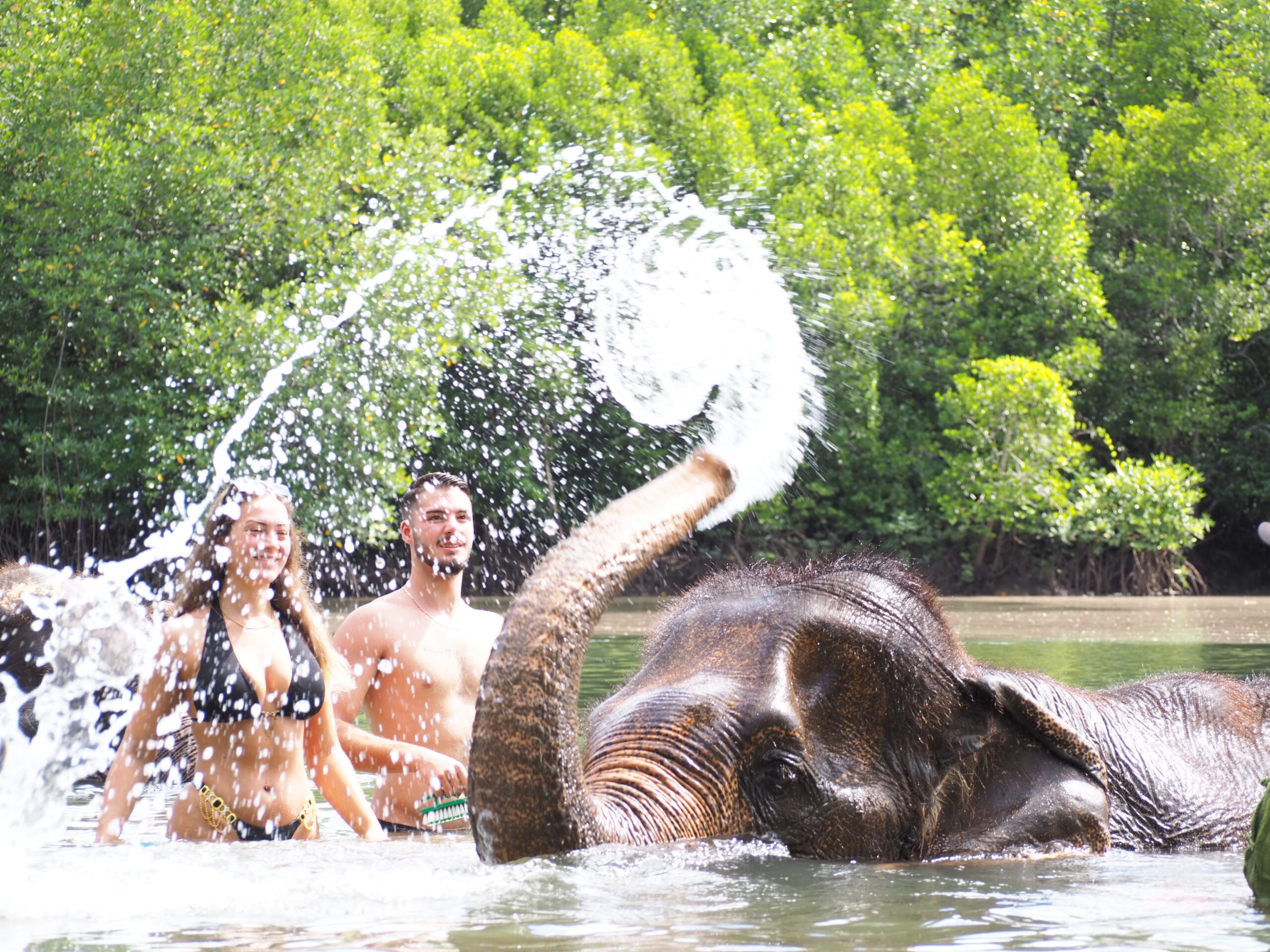
Conservation plays a crucial role in protecting Thailand’s elephant population and preserving their natural habitats. With Asian elephants facing threats such as habitat loss, poaching, and human-wildlife conflict, concerted efforts are needed to ensure their long-term survival. Many elephant sanctuaries and organizations in Thailand are actively involved in conservation initiatives, including habitat restoration, community outreach, and research projects. By supporting these efforts through responsible tourism and conservation partnerships, visitors can make a meaningful contribution to elephant conservation in Thailand.
Sustainable Practices in Elephant Tourism
Sustainability is at the forefront of responsible elephant tourism in Thailand, with many organizations implementing eco-friendly practices to minimize their environmental impact. From renewable energy sources to waste reduction measures, there are various ways that elephant camps and sanctuaries are striving to operate in harmony with the natural world. Additionally, sustainable tourism practices extend to the local communities, providing economic opportunities and empowering residents to become stewards of their natural resources.
The Magic of Elephant Bathing in Krabi
Nestled along the picturesque shores of southern Thailand, Krabi is renowned for its stunning beaches, limestone cliffs, and emerald-green waters. It’s also home to several reputable elephant sanctuaries, where visitors can experience the magic of elephant bathing amidst the region’s natural beauty. At sanctuaries like Krabi Elephant Shelter, visitors have the opportunity to engage in hands-on interactions with elephants, including bathing, feeding, and learning about their behaviors and conservation status. With its tranquil atmosphere and lush surroundings, Krabi offers an idyllic setting for a truly unforgettable elephant bathing experience.
The Cultural Significance of Elephant Bathing
In addition to its practical benefits, elephant bathing holds significant cultural and spiritual importance in Thailand. For centuries, elephants have played a central role in Thai society, symbolizing power, prosperity, and good fortune. In rural communities, elephants are revered as revered as sacred animals, and their well-being is often closely intertwined with local customs and traditions. By participating in elephant bathing experiences, visitors not only gain insight into Thai culture but also contribute to the preservation of this cultural heritage.
The Future of Elephant Tourism in Thailand
As the demand for ethical and sustainable elephant tourism continues to grow, the future of elephant tourism in Thailand is evolving. More and more travelers are seeking out responsible elephant experiences that prioritize animal welfare, conservation, and cultural authenticity. From small-scale sanctuaries to community-based ecotourism initiatives, there is a diverse range of options for visitors to engage with elephants in a way that is ethical, educational, and immersive. By supporting these initiatives, travelers can help shape a future where elephants are valued and protected for generations to come.
Tips for Responsible Elephant Bathing
Before embarking on an elephant bathing experience in Thailand, it’s essential to be mindful of responsible tourism practices. Here are some tips to ensure a positive and ethical experience:
- Research reputable elephant sanctuaries and organizations that prioritize animal welfare and conservation.
- Respect the elephants’ space and boundaries, and follow the guidance of trained staff members when interacting with them.
- Take the opportunity to learn about elephant conservation and the challenges facing Thailand’s elephant population.
- Support sustainable tourism initiatives that benefit local communities and contribute to elephant conservation efforts.
By following these tips, visitors can enjoy a meaningful and responsible elephant bathing experience while supporting the well-being and conservation of Thailand’s elephants.
Embracing the Spirit of Elephant Conservation
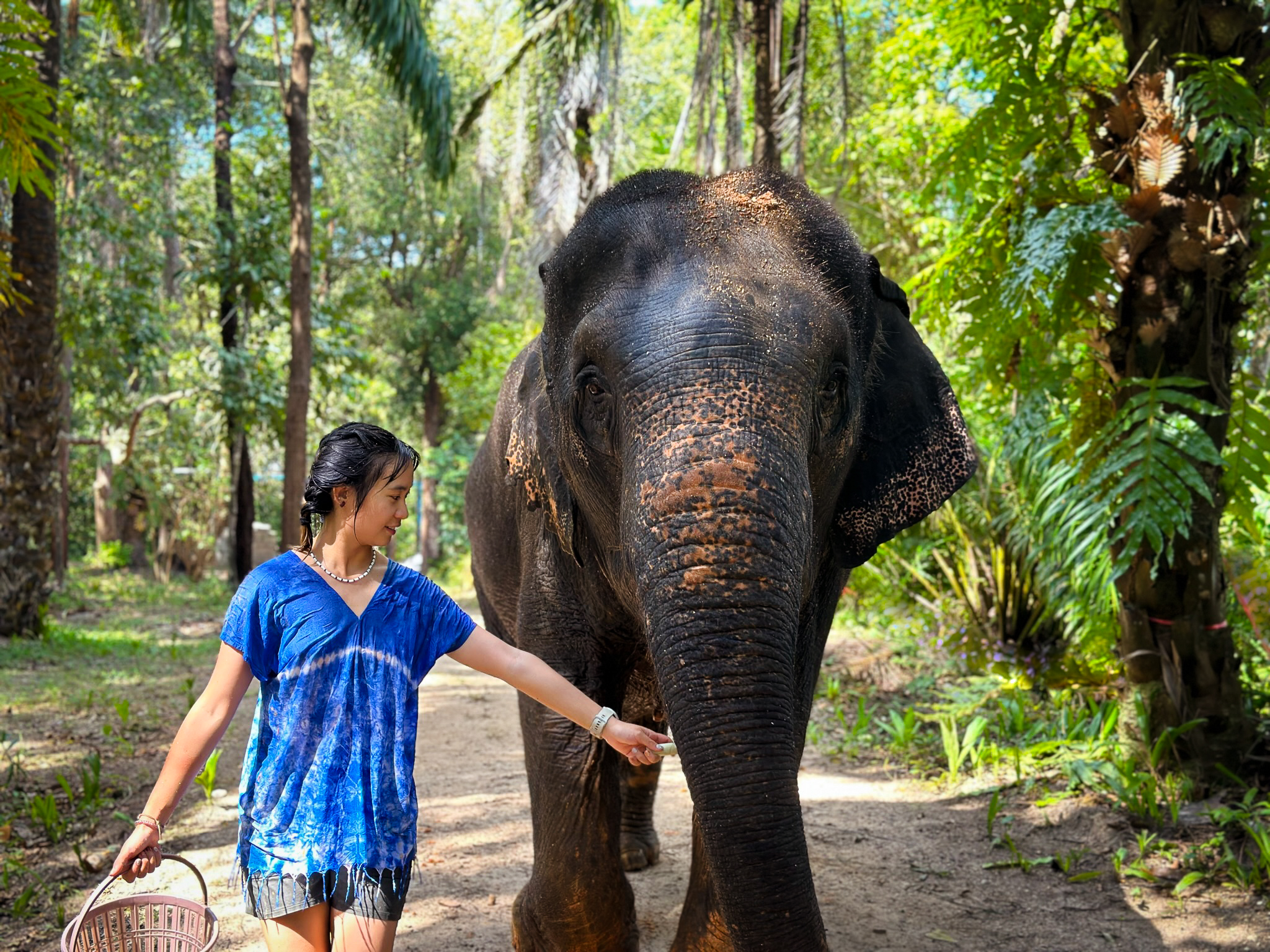
In closing, Washing Elephants in Thailand is more than just a tourist activity—it’s a journey of connection, conservation, and cultural immersion. Whether bathing alongside these gentle giants in Krabi or exploring the lush jungles of Chiang Mai, every interaction with elephants is an opportunity to deepen our understanding and appreciation for these magnificent creatures. By embracing the spirit of elephant conservation and responsible tourism, we can ensure a brighter future for Thailand’s elephants and the ecosystems they inhabit. So come, join us on this transformative journey, and experience the magic of washing elephants in Thailand firsthand.
As we conclude our journey into the world of elephant bathing in Thailand, we are reminded of the profound impact that these experiences can have on both humans and elephants alike. From fostering bonds of empathy and understanding to supporting conservation efforts and cultural heritage, washing elephants in Thailand is a truly enriching and transformative experience. So let us continue to cherish and protect these magnificent creatures, ensuring that future generations can also marvel at the beauty and wonder of Thailand’s elephants. Thank you for joining us on this unforgettable adventure, and may your hearts be forever touched by the magic of elephant conservation.
Frequently Asked Questions
What is Washing Elephants?
Washing Elephants is a hands-on activity where visitors have the opportunity to bathe elephants in water. It’s a chance to interact closely with these majestic creatures while providing them with a refreshing and enjoyable experience.
Is it safe to wash elephants?
When conducted in reputable elephant sanctuaries or camps with trained staff, Washing Elephants is generally safe for both visitors and elephants. It’s important to follow guidelines provided by the sanctuary and respect the elephants’ space and behavior.
How do I participate in Washing Elephants?
To participate in Washing Elephants, you can book a visit to an ethical elephant sanctuary or camp in Thailand. These facilities offer guided tours and experiences that include bathing, feeding, and learning about elephant conservation.
What should I wear for Washing Elephants?
Wear comfortable clothing that you don’t mind getting wet and dirty, as Washing Elephants can be a messy but enjoyable experience. It’s also a good idea to wear sunscreen and a hat to protect yourself from the sun.
Can children participate in washing elephants?
Many elephant sanctuaries welcome children to participate in washing elephants activities, but it’s essential to check with the sanctuary beforehand for any age restrictions or guidelines. Children should always be supervised by adults during the experience.
What are the benefits of Washing Elephants?
Washing Elephants allows visitors to connect with these gentle giants in a meaningful way while supporting their physical and psychological well-being. It also raises awareness about elephant conservation and the importance of protecting their natural habitats.
How can I find reputable elephant sanctuaries in Thailand?
Researching online and reading reviews from other travelers can help you find reputable elephant sanctuaries in Thailand. Look for facilities that prioritize animal welfare, conservation, and ethical tourism practices.
Can I take photos during Washing Elephants?
Many elephant sanctuaries allow visitors to take photos during Washing Elephants activities, but it’s essential to respect the elephants’ space and behavior. Avoid using flash photography or making loud noises that could startle or disturb the animals.
How can I support elephant conservation efforts in Thailand?
You can support elephant conservation efforts in Thailand by visiting ethical elephant sanctuaries or camps, making donations to reputable conservation organizations, and spreading awareness about the importance of protecting elephants and their habitats.


